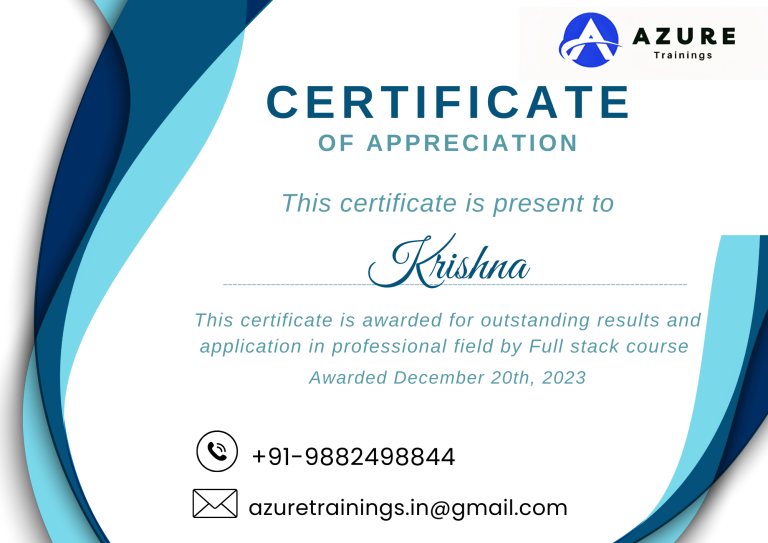FAQ'S
Frequently Asked Questions
Full Stack Development involves working with both the front-end (client-side) and back-end (server-side) of web applications. It includes skills in HTML, CSS, JavaScript for the front-end, and server-side scripting, databases, and server management for the back-end.
A Full Stack course typically covers HTML, CSS, JavaScript, front-end frameworks (e.g., React, Angular), back-end technologies (e.g., Node.js, Django, Flask), databases (e.g., MySQL, MongoDB), and version control systems (e.g., Git).
While prior programming experience is beneficial, many Full Stack courses cater to beginners. Basic knowledge of programming concepts can be helpful, but a good Full Stack course will cover the fundamentals.
Front-end development involves creating the user interface and user experience of a website or application. Back-end development focuses on server-side logic, databases, and server management to ensure data processing and storage.
Commonly used languages include JavaScript, HTML, and CSS for the front-end, and languages like Node.js, Python (Django, Flask), and Ruby (Ruby on Rails) for back-end development.
Full Stack courses often include hands-on projects to reinforce learning. These projects may involve building a complete web application, integrating databases, and implementing both front-end and back-end functionalities.
Yes, deployment and hosting are integral parts of Full Stack Development. A comprehensive course should cover deploying applications to platforms like Heroku, AWS, or other hosting services.
Yes, understanding and working with databases is a key component. Courses may cover relational databases like MySQL or PostgreSQL, as well as NoSQL databases like MongoDB.
Most Full-stack courses include project work that can be added to your portfolio. Additionally, you may be guided on how to showcase your skills and projects effectively to potential employers.
Yes, after gaining a foundation, you can specialize in areas such as front-end development, and back-end development, or even specialize in certain frameworks or technologies based on your interests.
Full-stack developers are in demand as they can work on entire web application development. Understanding both front-end and back-end technologies makes individuals versatile and well-suited for various roles in the industry.
Good Full Stack courses often provide access to forums, communities, or discussion platforms where learners can interact, ask questions, and collaborate with peers and instructors.



